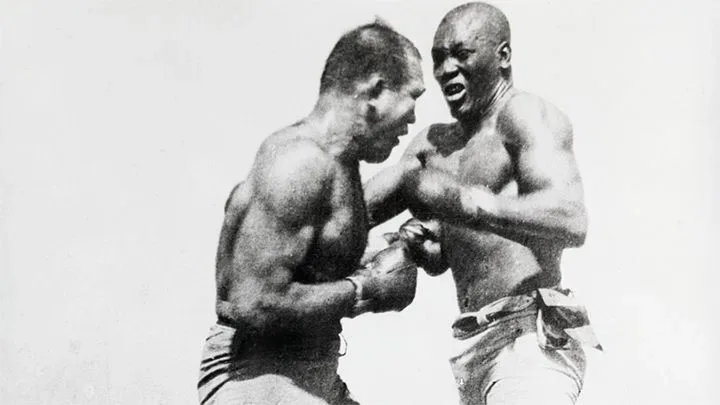
The “Fight of the Century”: Jack Johnson’s Historic Triumph over Jim Jeffries
In a highly anticipated showdown on July 4, 1910, in Reno, Nevada, former heavyweight champion Jim Jeffries, a 330-pound alfalfa farmer who had been lured out of retirement, faced off against the reigning titleholder, the pioneering Jack Johnson. This clash, dubbed the “Fight of the Century,” was widely seen as a battle to restore the heavyweight crown to a white man, with Jeffries serving as the so-called “Great White Hope.”
The backdrop was significant – Johnson had become the first Black man to win the heavyweight championship in 1908, defeating Tommy Burns in Sydney, Australia. His triumph and unwillingness to kowtow to the demands of the white public had unsettled his detractors, setting the stage for the search for a challenger who could reclaim the title for the white race.
“I am going into this fight for the sole purpose of proving that a White man is better than a Negro.”
- Jim Jeffries
Jeffries, a formidable fighter in his prime, had beaten the likes of Tom Sharkey, Bob Fitzsimmons, and James J. Corbett, but had retired in 1904 with an undefeated record. Despite his reluctance, Jeffries was lured into the lucrative superfight.
The bout was a spectacle, with ringside seats selling for as much as $125, equivalent to over $4,000 today. The action was captured by nine cameramen, and the event drew a crowd of roughly 20,000, despite the sweltering 110°F heat.
Jeffries, who had slimmed down to 227 pounds under the guidance of his former foe Corbett, was the 10-to-6 betting favorite. However, the 35-year-old, ring-rusty Jeffries was no match for the more agile and energetic Johnson, who gradually broke down the former champion, bloodying his mouth and breaking his nose.
In the 15th round, Johnson floored Jeffries twice, prompting Jeffries’ corner to throw in the towel. The news of Johnson’s triumph sparked race riots across the country, leading to dozens of deaths, and the popular film of the fight was banned in many locales.
The aftermath of the “Fight of the Century” reflected the deep-seated racial tensions and insecurities of the time. Jeffries himself later admitted that he could never have beaten Jack Johnson at his best, thus shattering the narrative of white superiority that had fueled the event.
🔗 Source



